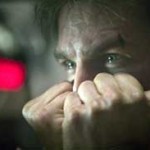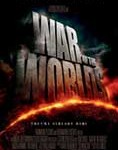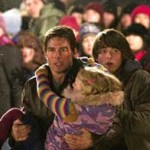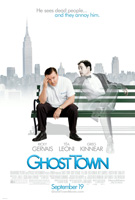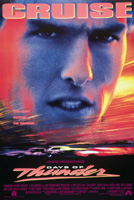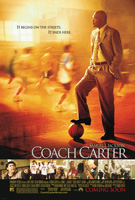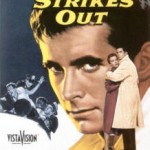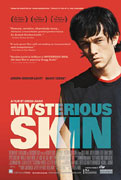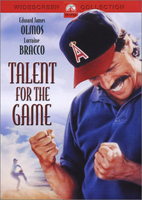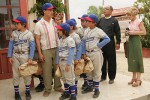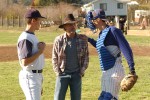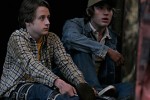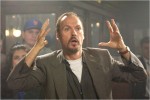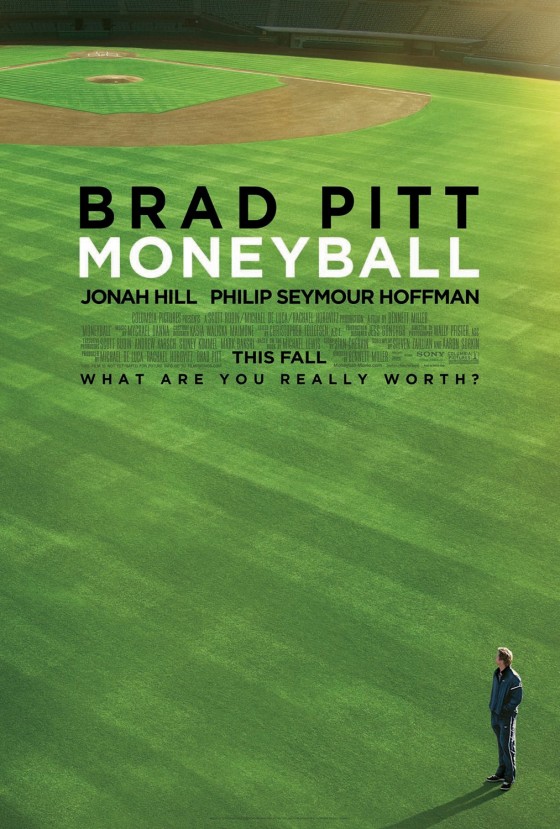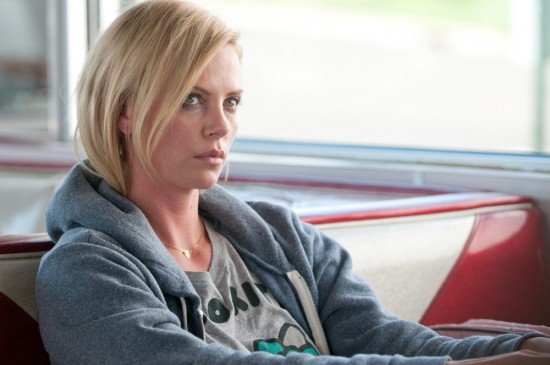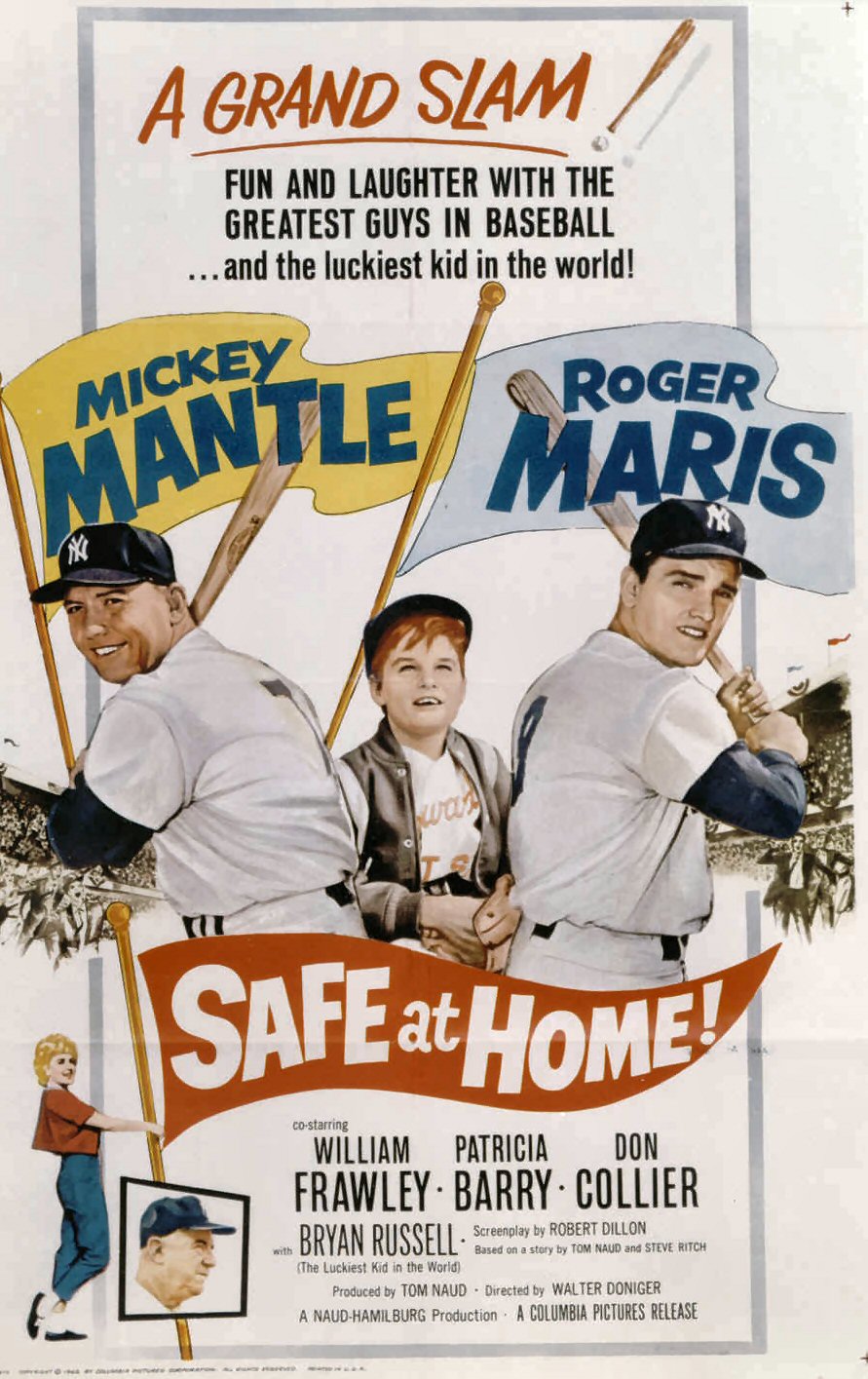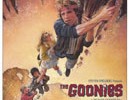The tragic events of 9/11 changed the way we look at life. In its immediate shadow, much of our line of thought was run purely on emotion. But now that nearly four years have past we can view the event’s impact more reasonably. War of the Worlds confronts the West’s collective feelings of vulnerability but at the same time it reassures our potential for survival. Like many a summer Hollywood blockbusters, it takes a patriotic approach, which turns out to be a good one for the characters but an out clause for whatever semblance of a story the film has.
Tom Cruise plays Ray Ferrier, a divorced father of two who thinks of his work first and family second. When he’s first introduced, Ray plays like the bad guy. He isn’t a team player on the job, he’s a menace on the streets and he’s ill prepared for a visit from his two children. But when things go BOOM! and a group of extra terrestrial tripods start disintegrating everything that moves, the stage is set for Ray to emerge a hero. But first he must face his imperfections.
It’s easy to look at War of the Worlds as a disaster flick where things get wrecked and not much else happens. And don’t get me wrong, see mass destruction on screen can be quite enjoyable. However, unlike The Day After Tomorrow where the action is the draw, it’s the biggest weakness of War of the Worlds. It’s not that the special effects aren’t good – they are – there’s just greater things happening.
War of the Worlds‘ greatest strength is its humanization of a disaster setting. Ray is not a generic character upstaged by crashing buildings and the like. He’s a character given realistic needs, thrown into extraordinary circumstances where he has to solve problems to move on and survive. Quite often the solutions Ray chooses aren’t the best ones. But he’s human and he’s ready to deal with the consequences. There are times, particularly in the very weak ending, where the Hollywood nature of the beast shows up and some of Ray’s struggles are undermined. But the journey to get to the horrible ending was worthwhile indeed.
With the ever imminent threat of terrorism hanging over the West like an unwelcome black cloud, Spielberg thoughtfully navigates where he feels we should stand. First off, terrorism is recognized as a threat. It is the first thought of many of the characters when the first strikes hit. Spielberg then goes on to suggest that we can deal with such threats in one of two ways: direct force and strategic action. The direct force is demonstrated by the appearance of the military and Ray’s son’s (Justin Chatwin) intense desire to join the military when he witnesses the destruction the aliens have caused. The second approach is more of a wait-and-see variety. This is Ray’s way of acting. Although he is shown as a careless and selfish person early in the film, his initial way of handling the invasion is to play it one step at a time, look for a weakness and try to exploit it.
Stylistically, War of the Worlds plays like a Spielberg’s Greatest Hits DVD. There’s direct comparisons to be made to the relative mystery of the invaders á la Jaws, mass carnage and saturated cinematography from Saving Private Ryan, a scene strikingly similar to the raptor kitchen hunt in Jurassic Park and the list goes on. However familiar some of the scenes feel, there’s also a lot of breathtaking shots to boot. Rather than a typical interior car shot where a group of characters talk and blue screens send backgrounds buy, there is a scene where the camera is outside the moving car and weaving in and out of traffic at the most opportune times to enhance the dialogue. It’s shots such as these that don’t stand out when you first see them, but as the time goes by you notice the complexity of the shots more and more. This scene could have been simple and made its point, but the way Spielberg set up the long shot only went to capture the chaos of the moment.
As much good stuff as there is in War of the Worlds, there’s also some major flaws. One of the background aspects of the film that I found most intriguing beforehand was the fact that it went from trade announcement to release in under a year. Typically Hollywood blockbusters take at least double that. While War of the Worlds is a very competent film, it feels rushed. There’s the familiarity of many of the scenes for one. Another is the forgettable John Williams score. It sounds very generic and I already cannot remember a note.
Thus far Dakota Fanning has proved to be an acting prodigy. Barely double digits, she has shown in previous roles that she can hang with the best actors in the business. Here, she’s the opposite. Her character is an annoying screamer who goes into instant hysterics at every turn. That’s understandable for certain when the world around you is being obliterated, but she is merely Ray’s damsel in distress. She contributes shrill screams and little else.
War of the Worlds is far from perfect. While it only ranks somewhere in the middle of the Spielberg canon, it is still better than a lot of the fluff that’s out there. It’s easy to pick out the plot holes and pick on the ending, amongst other things. But War of the Worlds also has the rare mix of being extremely entertaining and thought provoking at the same time.
War of the Worlds Gallery
War of the Worlds Trailer
